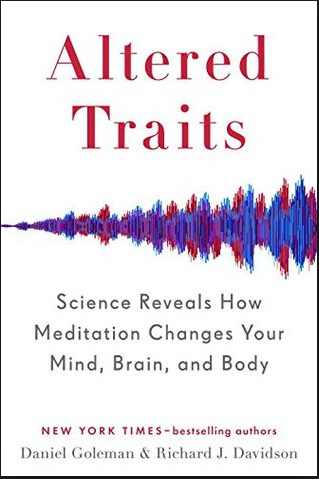 Is mindfulness a cure all?
Is mindfulness a cure all? Do you feel scepticism or even a sense of outrage, when something is presented as a cure for everything? If so you are a bit like me. I’m not so good at taking things at face value. I like them to make sense.
I first dabbled with a mindfulness practice 30 years ago. I attended long meditation retreats and loved them but often switched off when it came to the “dharma talk”, the talk that engaged with the psychology

I first dabbled with a mindfulness practice 30 years ago. I attended long meditation retreats and loved them but often switched off when it came to the “dharma talk”, the talk that engaged with the psychology or philosophy of the meditation practice. For me, these talks did not quite cross the east-west divide. When concepts like reincarnation crept in, I found myself switching off.
I kept practising mindfulness because I found it useful. It left me feeling calmer and more vital. It helped me recover more quickly when I was stressed. I'd say to my partner, "I'm going to catch 20 minutes of meditation and I'll come back a nicer person" and it was true.
About eight years ago, my workplace asked me to give a workshop on mindfulness and I made the transition from someone who listened to ‘mindfulness talks’ to someone who gave them. As I prepared, I was struck by the explosion in mindfulness research, some good quality and much not.
Mindfulness was often presented as a ' panacea', a metaphorical pill to cure-all ills, in the media. I simply did not believe it. Intrigued, and hoping to learn more, I trained as an MBSR a teacher, an evidence-based course that much of the better-quality mindfulness research has engaged with.
As I became more informed, I could sort the good research from the bad and found myself suitably impressed with what mindfulness training could offer. When I began to teach MBSR and to introduce more mindfulness training into my counselling, I witnessed many benefits first-hand.

Understanding the research became much easier last year when Richard Davidson and Daniel Goleman published the book "Altered Traits; Science reveals how meditation changes your mind, brain, and body. They are both experienced researchers and gracefully summarise and explain much of the significant mindfulness research. Their book is clear, very readable and puts the research under the microscope. If you are interested in the topic it is well worth reading.
The book raises topical questions but it is not all hype. It is quick to let you know if the research claims are not quite legitimate or perhaps exaggerated, or if we do not yet know enough to answer a question. When it tells you how meditation affects the mind, brain and body of a new meditator It also tells you whether these changes are likely to be temporary states or to more permanent traits, something that will become a part of who you are in the long term.
 Meditation may change your brain
Meditation may change your brain Students in my MBSR classes find the first 2-4 weeks of practice the most difficult. That’s the time when they need all the encouragement they can get to set up a routine and keep going. Sometimes they can be motivated by the science which shows that new meditators may experience benefits even in the first few hours, days and weeks of practice.
So, what might improve for you as a beginner?
1. In just a couple of weeks, your capacity to pay attention may improve. You might find your mind is more focused and wanders less. You might even have a slightly better working memory. That’s the ability to hold new things in your mind and shuffle them around effectively.
2. You may be more resilient and less reactive to stress. This shows up in brain scans as changes in a part of the brain that actively processes emotion. It’s called the amygdala.
3. It may take just 30 hours of meditation practice for tests that measure inflammation in your body to show a decrease in markers of inflammation - and that is good for you.

And here is the proviso! Initially, changes are likely to be fragile and need regular practice to be sustained. The danger of writing a blog post like this is that all sounds so simple but it's worth reading the book to get the nuances. While the research is very positive, and being more mindful is undoubtedly good for you, there is so much we still don't know.
Blog series on the science-the 4 neural pathways that meditation transforms
Over the next few months, I’ll be exploring some of the content of this book and some other research in a little more detail. You will be able to read about the 4 neural pathways that research shows meditation can transform; stress, compassion and empathy, attention; and our sense of self. You’ll learn a little more about how temporary states in meditation can become more permanent neural traits. It is also worthwhile reading the book above.
How to find a HeadRest evidence–based mindfulness course?
MBSR and MBCT are the 2 courses with the strongest evidence-base. I am trained to teach both. If you attend an MBSR course I’ll invite you to be part of an experiment, where are both the scientist and the subject in your personal research project. As the subject you try it out, learning formal and informal mindfulness practices in a structured way, and practice them daily. As the scientist, you reflect on your experience individually and in class discussion with the teachers support.
Join me for a HeadRest MBSR course in Marrickville. These run 4 x a year in each school term.
To find out about HeadRest, MBSR course dates, course discounts and receive links to blog posts subscribe to our newsletter. I hope to meet you in a course soon.

 RSS Feed
RSS Feed
